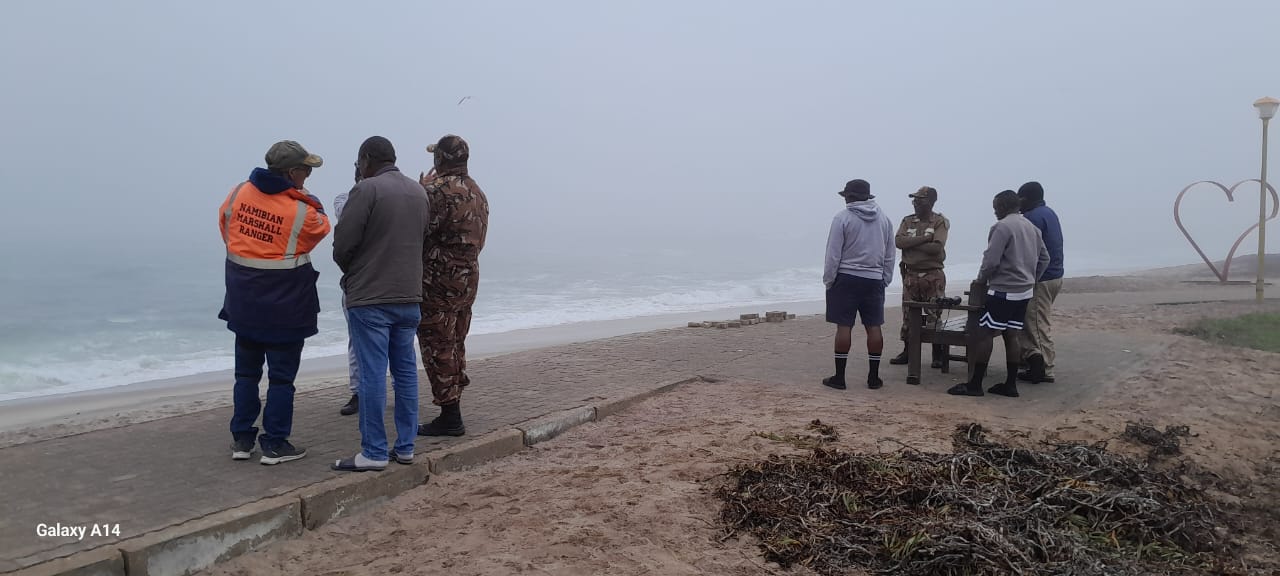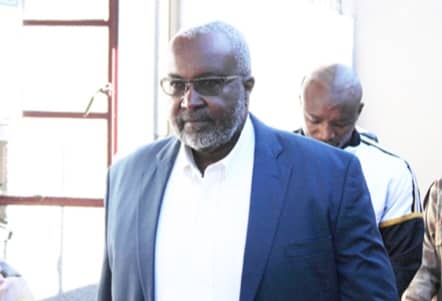LAST year a prominent Zimbabwean academic and writer was barred from speaking at the University of Namibia.
This year two Namibian academics, at the same institution, are facing the axe for participating in politics. I hope I’m not reading too much into these events.But from the look of things, there seems to be a pattern developing here.The two have opened up some serious questions about the contradictory expectations and obligations politically engaged faculty members face in contemporary Namibian academic circles.The question is: is there still a role and place for public intellectuals at our institutions of higher learning, if there was before? Are we witnessing a full-blooded assault upon independent intellectuals in Namibia? Some might recall that late last year the authority at the University of Namibia (UNAM) decided, at the last minute, to cancel John Makumbe’s talk at their institution.Professor Makumbe teaches politics at the University of Zimbabwe and has been a constant critic of President Robert Mugabe’s regime.Well, the public lecture on the situation in Zimbabwe was subsequently shifted to the Safari Hotel.In the latest fiasco, two Unam academics, Usu Maamberua and Dr Tangeni Iijambo, have been given an ultimatum: relinquish your political positions in Swanu or quit the University.Should this ultimatum be implemented, it would be an unusual precedent in independent Namibia.In both the Makumbe fiasco and the saga of the two academics, no concrete reasons were given, thus leaving the field open to speculation.The University Council’s resolution barring the two academics from participating in active politics is rather vague as to why they should not.But apparently it is not just Unam – the Polytechnic of Namibia has a similar policy in place, according its Rector, Dr Tjama Tjivikua.But these cases remind us of our very sad history.One is the very colonial legacy of our institutions where politics was taboo unless it was system supportive.The other is the rather un-democratic way in which most of these institutions are run, also a legacy of the apartheid era.These institutions were not built on a tabula rasa, as we are made to believe.I also have serious reservations about some of the people who serve on Unam and the Poly Senates and Councils – many do not have an understanding of academic life yet are required to make critical decisions affecting faculty and students.So, it is unacceptable that a decision of such magnitude and far-reaching implications was not even widely discussed with faculty or a broader audience.The decision was simply communicated in a circular – no consultation, let alone participation.One of the ironies in all these is that some of the people in top positions at these institutions are political appointees – basically belonging to certain political orientations.Therefore it wouldn’t be far-fetched to argue that one of their functions is to keep the campuses safe from other political persuasions.It is easily forgotten that universities are also sites of power both at the level of what is perceived as the ‘acceptable’ dominant meta-narratives and real politics.Why do you think African presidents want to be chancellors of their national universities? The other trend that I have observed at both Unam and the Poly is that academics there are reluctant to welcome critical intellectuals from outside lest they cause ‘trouble’ at their safe-havens or fiefdoms.You remember the Archie Mafeje affair at Unam? So, most of these people feel more comfortable by surrounding themselves with their own ‘yes’ men/women.In such a setup one tends to define his or her academic reach rather narrowly.Let’s face it, many academics in Namibia have not really made any significant contribution to public/development discourse and debate.There are a few lone voices here and there such as Prof Andre du Pisani but he is now totally quiet for some reason.The young Phanuel Kaapama at Unam is also doing a good job.But one needs a critical mass of public scholars to be able to marry academic and development discourses.Unfortunately, most of our academics have drawn a solid but artificial boundary between academia and the public sphere.But let me quickly point out that not all academics are intellectuals and that perhaps, in part, explain why ‘non-intellectual’ academics prefer to bask in the comfort of the ivory tower, preferring to do consultancies to supplement their incomes just as civil servants do with S&T.It seems to me, therefore, that we need to interrogate our understanding of the alternatives open to us in terms of that boundary.Notions of academic separation from public life/politics make universities conceptually distant from communities.And it also give universities a distinctly technicist complexion thus seeing their role as merely imparting “neutral” knowledge to students.What people fail to understand or appreciate, even among the so-called educated class here, is that there has been a long-term politicisation of the humanities that entered American and African universities from the late 1960s – all concerned with issues of societal inequalities and liberation.But structuralists have problems understanding this simple issue.And this is what is at the root of the current problem at Unam.One does not have to be in a specific political structure to be able to impart political ideas and knowledge (propaganda?).Most of these are embedded in our very vocation at universities.Jurgen Habermas has identified four types of intellectuals: the un-political among the writers and the mandarins among the scholars – these assume a clear separation between academia and power.The second mirror the first by defending that separation arguing that academics are not competent in public matters.The third group consist of independent but politically engaged intellectuals – Noam Chomsky, Edward Said, Archie Mafeje, Henning Melber, to name just a few.The fourth group put their intellectual work at the disposal of a political party – they actually cross over to become professional politicians.That’s the menu and I think every academic has the right to decide where to position him or herself in terms of those roles and not to be hamstrung by outdated institutional rules.I hope I’m not reading too much into these events.But from the look of things, there seems to be a pattern developing here.The two have opened up some serious questions about the contradictory expectations and obligations politically engaged faculty members face in contemporary Namibian academic circles.The question is: is there still a role and place for public intellectuals at our institutions of higher learning, if there was before? Are we witnessing a full-blooded assault upon independent intellectuals in Namibia? Some might recall that late last year the authority at the University of Namibia (UNAM) decided, at the last minute, to cancel John Makumbe’s talk at their institution.Professor Makumbe teaches politics at the University of Zimbabwe and has been a constant critic of President Robert Mugabe’s regime.Well, the public lecture on the situation in Zimbabwe was subsequently shifted to the Safari Hotel.In the latest fiasco, two Unam academics, Usu Maamberua and Dr Tangeni Iijambo, have been given an ultimatum: relinquish your political positions in Swanu or quit the University.Should this ultimatum be implemented, it would be an unusual precedent in independent Namibia.In both the Makumbe fiasco and the saga of the two academics, no concrete reasons were given, thus leaving the field open to speculation.The University Council’s resolution barring the two academics from participating in active politics is rather vague as to why they should not.But apparently it is not just Unam – the Polytechnic of Namibia has a similar policy in place, according its Rector, Dr Tjama Tjivikua.But these cases remind us of our very sad history.One is the very colonial legacy of our institutions where politics was taboo unless it was system supportive.The other is the rather un-democratic way in which most of these institutions are run, also a legacy of
the apartheid era.These institutions were not built on a tabula rasa, as we are made to believe.I also have serious reservations about some of the people who serve on Unam and the Poly Senates and Councils – many do not have an understanding of academic life yet are required to make critical decisions affecting faculty and students.So, it is unacceptable that a decision of such magnitude and far-reaching implications was not even widely discussed with faculty or a broader audience.The decision was simply communicated in a circular – no consultation, let alone participation.One of the ironies in all these is that some of the people in top positions at these institutions are political appointees – basically belonging to certain political orientations.Therefore it wouldn’t be far-fetched to argue that one of their functions is to keep the campuses safe from other political persuasions.It is easily forgotten that universities are also sites of power both at the level of what is perceived as the ‘acceptable’ dominant meta-narratives and real politics.Why do you think African presidents want to be chancellors of their national universities? The other trend that I have observed at both Unam and the Poly is that academics there are reluctant to welcome critical intellectuals from outside lest they cause ‘trouble’ at their safe-havens or fiefdoms.You remember the Archie Mafeje affair at Unam? So, most of these people feel more comfortable by surrounding themselves with their own ‘yes’ men/women.In such a setup one tends to define his or her academic reach rather narrowly.Let’s face it, many academics in Namibia have not really made any significant contribution to public/development discourse and debate.There are a few lone voices here and there such as Prof Andre du Pisani but he is now totally quiet for some reason.The young Phanuel Kaapama at Unam is also doing a good job.But one needs a critical mass of public scholars to be able to marry academic and development discourses.Unfortunately, most of our academics have drawn a solid but artificial boundary between academia and the public sphere.But let me quickly point out that not all academics are intellectuals and that perhaps, in part, explain why ‘non-intellectual’ academics prefer to bask in the comfort of the ivory tower, preferring to do consultancies to supplement their incomes just as civil servants do with S&T.It seems to me, therefore, that we need to interrogate our understanding of the alternatives open to us in terms of that boundary.Notions of academic separation from public life/politics make universities conceptually distant from communities.And it also give universities a distinctly technicist complexion thus seeing their role as merely imparting “neutral” knowledge to students.What people fail to understand or appreciate, even among the so-called educated class here, is that there has been a long-term politicisation of the humanities that entered American and African universities from the late 1960s – all concerned with issues of societal inequalities and liberation.But structuralists have problems understanding this simple issue.And this is what is at the root of the current problem at Unam.One does not have to be in a specific political structure to be able to impart political ideas and knowledge (propaganda?).Most of these are embedded in our very vocation at universities.Jurgen Habermas has identified four types of intellectuals: the un-political among the writers and the mandarins among the scholars – these assume a clear separation between academia and power.The second mirror the first by defending that separation arguing that academics are not competent in public matters.The third group consist of independent but politically engaged intellectuals – Noam Chomsky, Edward Said, Archie Mafeje, Henning Melber, to name just a few.The fourth group put their intellectual work at the disposal of a political party – they actually cross over to become professional politicians.That’s the menu and I think every academic has the right to decide where to position him or herself in terms of those roles and not to be hamstrung by outdated institutional rules.
Stay informed with The Namibian – your source for credible journalism. Get in-depth reporting and opinions for
only N$85 a month. Invest in journalism, invest in democracy –
Subscribe Now!










